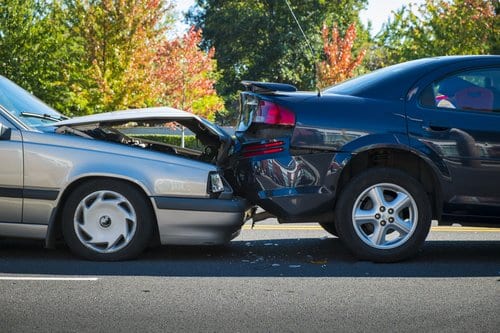Filing a claim after an accident? What to know!
To successfully file a claim, you’ll need to prove that the accident caused your injuries—that is, that you were injured during the accident itself or as a direct result of the events of the accident. For example, if your injuries resulted from medical negligence in the hospital after the accident, the hospital, not the individuals responsible for the accident, will bear responsibility for those injuries. On the other hand, if your injuries were a direct result of the accident, you may claim the following:
· Ambulance and transportation expenses. Were you transported to the hospital via ambulance from the scene of the accident? Ambulance costs may create high initial fees for your medical bills. Even if you only sustain minor injuries, you may still require ambulance transport. · Immediate medical expenses at the hospital. Emergency room bills often mount quickly. You may require x-rays, scans, and other tests to help determine the full extent of your injuries. At the hospital, you may also receive immediate treatment for your injuries, including durable medical equipment, like crutches, walkers, and wheelchairs, that will help maintain mobility while you’re recovering from your injuries.
· Ongoing cost of medical care. Broken bones, internal bleeding, and organ damage may all require surgical treatment, as well as long-term medical care. You may remain hospitalized for quite some time, or you may need to attend multiple visits with your doctor to receive full treatment for your injuries. You may require physical therapy to help regain strength, flexibility, and mobility as your injury heals. · Cost of long-term care. In some cases, you may receive injuries in your accident that are permanent or that involve the need for long-term medical care. If you require long-term care to help with your injuries, including skilled nursing care, a caregiver to help with daily tasks around the home, or ongoing medical assistance, you may receive compensation for those costs.
· Durable medical equipment and alterations to your home and transportation. In some cases, your injuries may require you to make modifications to your home or vehicle to remain mobile. You may need to widen doorways, install ramps, or add mobility assistance to help you get up and down stairs. You may need a vehicle that is specially modified to allow you to operate it without using your legs or your feet. In some cases, you may need to use durable medical equipment, including wheelchairs,
walkers, shower chairs, and safety bars, to help improve your ability to engage in daily activities independently. Compensation for these purchases may add to your personal injury claim. · Lost wages. Significant injuries often prevent you from working. How much time you miss at work may depend on the extent of your injuries and the type of work that you perform. For example, an injury to your lower body may not prevent you from performing everyday work at a desk job long-term, though it may temporarily prevent you from working a normal schedule, especially if your injury causes a significant amount of pain. If you work a manual job, on the other hand, you may miss a great deal of time at work before you’re able to return to your normal schedule. Traumatic brain injury can make it difficult to complete even the responsibilities associated with a desk job, especially if you struggle with confusion or agitation. The financial damages associated with lost time at work can leave you struggling, especially as medical bills mount. Most injured individuals will include those wages as part of their personal injury claim.
· Lost earning potential. Some injuries may permanently impact your ability to return to work in your former capacity. Paralysis, for example, may prevent you from returning to a factory job that requires you to stand, walk, or transport heavy items through the bulk of the day. Traumatic brain injury, especially with lingering effects, may prevent you from performing your normal job duties. In this case, you may receive compensation for lost earning potential as part of your personal injury claim. Generally, insurance companies base lost earning potential on your salary at the time of your accident. You may also be able to recover funds for upcoming promotions or raises, but many insurance companies resist paying out these amounts. · Funeral and burial expenses. Not all personal injury claims are filed by the individual who was injured. In some cases, family members and beneficiaries may file a claim on a deceased individual’s behalf. If you have a loved one who was killed in a car accident, you may recover funeral and burial expenses through a claim on his or her behalf. You may also recover funds to help cover loss of companionship or loss of the individual’s support.
Personal injury lawsuits are often limited by the maximum amounts set by the responsible individual’s insurance policy. In many cases, however, working with a lawyer can help you more effectively establish exactly how much compensation
you should receive for your injuries as well as increase the odds that you’ll receive the maximum amount allowed by the plan.
231




